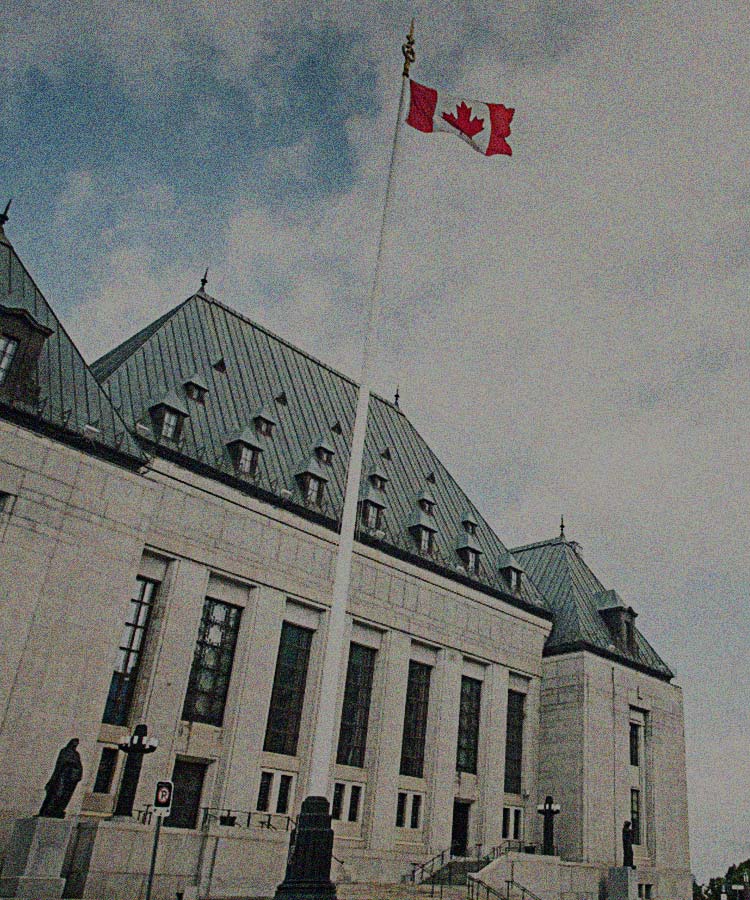Refusing to burn a confidential source is a hallmark of journalistic integrity. But does Canadian law protect journalism confidentiality? That’s what we went to the Supreme Court of Canada to argue today.
CCLA is before the Supreme Court of Canada today intervening in a case that addresses the importance of protecting journalists’ confidential sources. In Denis v Cote, the Supreme Court will have its first opportunity to interpret the Journalistic Sources Protection Act (JSPA), legislation that made significant changes to the rules of evidence in recognition of the vital role that confidential sources play in the media’s news gathering function.
The case arises out of a criminal trial in Quebec. Mr. Cote, the accused, alleged that certain documents and information arising out of a police investigation were deliberately leaked by agents of the state to a reporter, Ms. Denis. He argued that this constituted an abuse of process and that the criminal charges against him should be stayed. In support of his motion, he sought to compel Ms. Denis to testify and provide her source’s identity. While his motion was initially denied, a subsequent decision required Ms. Denis to identify her source, and the matter is now before the SCC.
CCLA has been involved in many cases that dealt with the role of the media and the importance of confidential sources. We intervened in the case to assist the Court in developing the principles that should apply when motions for disclosure of sources are brought under the new statutory scheme established by the JSPA. Our goal is to ensure that the law is interpreted in a way that furthers freedom of the press – something that cannot be done unless journalists have adequate protection for confidential sources. CCLA is arguing that the presumption against disclosure of a confidential source can only be overcome where there is no other reasonable means of getting the relevant information, and where the public interest in disclosure clearly outweighs the public interest in non-disclosure. Essentially, disclosure of a confidential source must be both necessary and proportional in light of the interests at stake. We are also encouraging the Court to recognize that when disclosure is ordered, conditions should be attached to such an order to ensure that it minimally impairs Charter protected rights.
We are grateful to Prof. Jamie Cameron of Osgoode Hall Law School and Chris Bredt, Pierre Gemson and Veronica Sjolin of BLG who are representing CCLA on the case pro bono.
About the Canadian Civil Liberties Association
The CCLA is an independent, non-profit organization with supporters from across the country. Founded in 1964, the CCLA is a national human rights organization committed to defending the rights, dignity, safety, and freedoms of all people in Canada.
For the Media
For further comments, please contact us at media@ccla.org.





